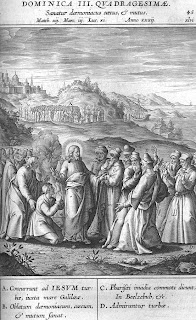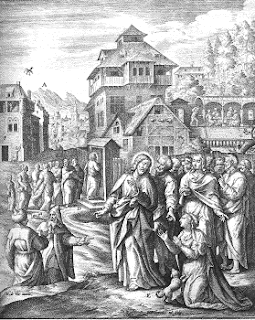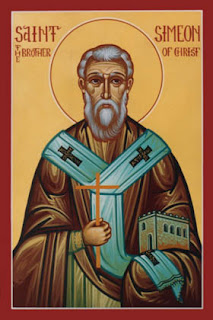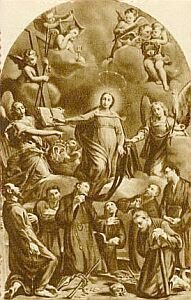Last week, Rorate Caeli
interviewed His Excellency Bishop Athanasius Schneider, one of the most
visible prelates working on the restoration of the traditional Latin
Mass and faith, on numerous topics.
In
this wide-ranging interview, His Excellency thoughtfully expounded on
issues critical to the Church in this great time of crisis. Read the
entire interview so you don't miss His Excellency's thoughts on the current status of the SSPX, women's participation in the Mass and the washing of women's feet, whether Russia was ever truly consecrated to the Immaculate Heart of Mary, Summorum Pontificum and anti-pastoral bishops and much, much more.
All may reprint/repost this interview -- but you must credit Rorate Caeli.
*NB: words in bold by Rorate for emphasis:
POST-SYNOD CHURCH & UNBELIEVERS IN THE HIERARCHY
Rorate Caeli: In
the recent Synod, we will not know the legal impact it will have on the
Church for some time, as it’s up to Pope Francis to move next.
Regardless of the eventual outcome, for all intent and purposes, is
there already a schism in the Church? And, if so, what does it mean
practically speaking? How will it manifest itself for typical Catholics
in the pews?
H.E. Schneider: Schism
means according to the definition of the Code of Canon Law, can. 751:
The refusal of submission to the Supreme Pontiff or of communion with
those members of the Church who are submitted to the Supreme Pontiff.
One has to distinguish the defect in belief or heresy from schism. The
defect in belief or heresy is indeed a greater sin than schism, as Saint
Thomas Aquinas said: “Unbelief is a sin committed against God Himself,
according as He is Himself the First Truth, on which faith is founded;
whereas schism is opposed to ecclesiastical unity, which is a lesser
good than God Himself. Wherefore the sin of unbelief is generically more
grievous than the sin of schism” (II-II, q. 39, a. 2 c).
The very crisis of the Church in our days consists in the ever growing phenomenon that those who don’t fully believe and profess the integrity of the Catholic faith frequently
occupy strategic positions in the life of the Church, such as
professors of theology, educators in seminaries, religious superiors,
parish priests and even bishops and cardinals. And these people with their defective faith profess themselves as being submitted to the Pope.
The
height of confusion and absurdity manifests itself when such
semi-heretical clerics accuse those who defend the purity and integrity
of the Catholic faith as being against the Pope – as being according to
their opinion in some way schismatics. For simple Catholics in the pews,
such a situation of confusion is a real challenge of their faith, in
the indestructibility of the Church. They have to keep strong the
integrity of their faith according to the immutable Catholic truths,
which were handed over by our fore-fathers, and which we find in in the
Traditional catechisms and in the works of the Fathers and of the
Doctors of the Church.
Rorate Caeli: Speaking
of typical Catholics, what will the typical parish priest face now that
he didn’t face before the Synod began? What pressures, such as the
washing of women’s feet on Maundy Thursday after the example of Francis,
will burden the parish priest even more than he is burdened today?
H.E. Schneider: A
typical Catholic parish priest should know well the perennial sense of
the Catholic faith, the perennial sense as well of the laws of the
Catholic liturgy and, knowing this, he should have an interior sureness
and firmness. He should always remember the Catholic principle of
discernment: “Quod semper, quod ubique, quod ab omnibus”, i.e. “What has
been always, everywhere and from all” believed and practiced.
The
categories “always, everywhere, all” are not to be understood in an
arithmetical, but in a moral sense. A concrete criterion for discernment
is this: “Does this change in a doctrinal affirmation, in a pastoral or
in a liturgical practice constitute a rupture with the centuries-old,
or even with the millennial past? And does this innovation really make
the faith shine clearer and brighter? Does this liturgical innovation
bring to us closer the sanctity of God, or manifest deeper and more
beautiful the Divine mysteries? Does this disciplinary innovation really
increase a greater zeal for the holiness of life?”
As
concretely to the innovation of washing the feet of women during the
Holy Mass of the Last Supper on Holy Thursday: This Holy Mass celebrates
the commemoration of the institution of the sacraments of the Eucharist
and the Priesthood. Therefore, the foot washing of women along with
the men not only distracts from the main focus on Eucharist and on
Priesthood, but generates confusion regarding the historical symbolism
of the “twelve” and of the apostles being of male sex. The universal
tradition of the Church never allowed the foot washing during the Holy
Mass, but instead outside of Mass, in a special ceremony.
By
the way: the public washing and usually also kissing of the feet of
women on the part of a man, in our case, of a priest or a bishop, is considered by every person of common sense in all cultures as being improper and even indecent.
Thanks be to God no priest or bishop is obliged to wash publicly the
feet of women on Holy Thursday, for there is no binding norm for it, and
the foot washing itself is only facultative.
PRIESTLY FRATERNITY OF ST. PIUS X (SSPX)
Rorate Caeli: A
non-typical situation in the church is the Priestly Society of St. Pius
X (SSPX). Why does Your Excellency think that so many Catholics are
afraid of the SSPX or anxious about any association with it? From what
Your Excellency has seen, what gifts do you think the SSPX can bring to
the mainstream Church?
H.E. Schneider: When
someone or something is unimportant and weak, nobody has fear of it.
Those who have fear of the Priestly Society of St. Pius X ultimately
have fear of the perennial Catholic truths and of its demands in the
moral and the liturgical domain.
When
the SSPX tries to believe, to worship and to live morally the way our
fore-fathers and the best-known Saints did during a millennial period,
then one has to consider the life and the work of these Catholic
priests and faithful of the SSPX as a gift for the Church in our days – even as one of the several instruments which the Divine Providence uses to remedy the enormity of the current general crisis of the faith, of the morals and of the liturgy inside the Church.
In some sectors of the SSPX there are, however, as it is the case in every human society some
eccentric personalities. They have a method and a mindset which lack
justice and charity and consequently the true “sentire cum ecclesia,”
and there is the danger of an ecclesial autocephaly and to be the last
judicial instance in the Church. However, to my knowledge, the
healthier part corresponds to the major part of the SSPX and I consider
their General Superior, His Excellency Monsignor Bernard Fellay, as an
exemplarily and true Catholic bishop. There is some hope for a canonical recognition of the SPPX.
THE SYNOD AND PAPALOTRY
Rorate Caeli: Back
on the Synod, while focusing on tradition, does Your Excellency believe
that the changes in the Roman liturgy post-Vatican II contributed to
the current crisis in the Church, the crisis of marriage, the family and
societal morality in general??
H.E. Schneider: I
wouldn’t affirm this in such a way. Indeed the very source of the
current crisis in the Church, the crisis of marriage, of the family and
of the morality in general is not the liturgical reform, but the defects
in faith, the doctrinal relativism, from which flows the moral and
liturgical relativism. For, if I believe in a defective manner, I will
live a defective moral life and I will worship in a defective,
indifferent manner. It is necessary first to restore the clearness and
firmness of the doctrine of faith and of morals in all levels and, from
there, start to improve the liturgy. The integrity and the beauty of the
faith demands the integrity and the beauty of one’s moral life and this
demands the integrity and the beauty of the public worship.
Rorate Caeli: Still
on the Synod, it is clear to those with eyes to see that Pope Francis
caused confusion instead of clarity in the Synod process, and encouraged
a turn toward rupture by elevating the role of Cardinals Kaspar and
Danneels, Archbishop Cupich, etc. What is the proper attitude a Catholic
should have towards the pope in these troubled times? Are Catholics
obliged to make their views known and “resist” as Cardinal Burke said in
an interview last year with us, even when their views are critical of
the pope?
H.E. Schneider: For
several past generations until our days there reigns in the life of the
Church a kind of “pope-centrism” or a kind of “papolatria” which is
undoubtedly excessive compared with the moderate and supernatural vision
of the person of the Pope and his due veneration in the past times.
Such an excessive attitude towards the person of the Pope generates in
the practice an excessive and wrong theological meaning regarding the
dogma of the Papal infallibility.
If
the Pope would tell the entire church to do something, which would
directly damage an unchangeable Divine truth or a Divine commandment, every Catholic would have the right to correct him in a due respectful form,
moved out of reverence and love for the sacred office, and person of
the Pope. The Church is not the private property of the Pope. The Pope can’t say “I am the Church,” as it did the French king Louis XIV, who said: “L’État c’est moi.” The Pope is only the Vicar, not the successor of Christ.
The
concerns about the purity of the faith is ultimately a matter of all
members of the Church, which is one, and a unique living body. In the
ancient times before entrusting to someone the office of a priest and of
a bishop, the faithful were asked if they can guarantee that the
candidate had the right faith, and a high moral conduct. The old
Pontificale Romanum says: “The captain of a ship and its passengers
alike have reason to feel safe or else in danger on a voyage, therefore
they ought to be of one mind in their common interests.” It was the
Second Vatican Council, which very much encouraged the lay faithful to
contribute to the authentic good of the Church, in strengthening the
faith.
I
think in a time in which a great part of the holders of the office of
the Magisterium are negligent in their sacred duty, the Holy Spirit
calls today, namely the faithful, to step into the breach and defend
courageously with an authentic “sentire cum ecclesia” the Catholic
faith.
TRADITION AND ITS ENEMIES FROM WITHIN
Rorate Caeli: Is
the pope the measure of tradition, or is he measured by tradition? And
should faithful Catholics pray for a traditional pope to arrive soon?
H.E. Schneider: The Pope is surely not the measure of tradition, but on the contrary.
We must always bear in mind the following dogmatic teaching of the
First Vatican Council: The office of the successors of Peter does not
consist in making known some new doctrine, but in guarding and
faithfully expounding the deposit of faith transmitted by the apostles
(cf. Constitutio dogmatica Pastor aeternus, cap. 4).
In
fulfilling one of his most important tasks, the Pope has to strive so
that “the whole flock of Christ might be kept away from the poisonous
food of error” (First Vatican Council, ibd.). The following expression
which was in use since the first centuries of the Church, is one of the
most striking definitions of the Papal office, and has to be in some
sense a second nature of every Pope: “Faithfully adhering to the
tradition received from the beginning of the Christian faith” (First
Vatican Council, ibd.).
We must always pray that God provides His Church with traditional-minded Popes.
However, we have to believe in these words: “It is not for you to have
knowledge of the time and the order of events which the Father has kept
in his control” (Acts 1: 7).
Rorate Caeli: We
know there are many bishops and cardinals – possibly the majority – who
want to change the Church's doctrinal language and long-standing
discipline, under the excuses of "development of doctrine" and "pastoral
compassion." What is wrong with their argument?
H.E. Schneider: Expressions like "development of doctrine" and "pastoral compassion" are in fact usually a pretext to change the teaching of Christ,
and against its perennial sense and integrity, as the Apostles had
transmitted it to the whole Church, and it was faithfully preserved
through the Fathers of the Church, the dogmatic teachings of the
Ecumenical Councils and of the Popes.
Ultimately, those clerics want another Church, and even another religion: A naturalistic religion, which is adapted to the spirit of the time. Such clerics are really wolves in sheep’s clothing, often flirting with the world. Not courageous shepherds – but rather cowardly rabbits.
ROLE OF WOMEN IN THE CHURCH
Rorate Caeli: We
hear a lot about the role of women in the Church today – the so-called
“feminine genius.” Women obviously have played a critical role in the
Church since the beginning, starting with the Blessed Virgin Mary. But
liturgically, Christ made His position crystal clear, as have
pre-Conciliar popes. Does Your Excellency believe that female
involvement in the liturgy, whether it’s women taking part in the Novus
Ordo Mass or girl altar boys, has played a positive or negative role in
the Church the last four decades?
H.E. Schneider: There
is no doubt about the fact that the female involvement in the
liturgical services at the altar (reading the lecture, serving at the
altar, distributing Holy Communion) represents a radical rupture with the entire and universal tradition of the Church. Therefore, such a practice is against the Apostolic tradition.
Such a practice gave to the liturgy of the Holy Mass a clear Protestant shape
and a characteristic of an informal prayer meeting or of a catechetical
event. This practice is surely contrary to the intentions of the
Fathers of the Second Vatican Council and there is not in the least an
indication for it in the Constitution on Sacred Liturgy.
THE TRADITIONAL LATIN MASS
Rorate Caeli: Your
Excellency is well known for celebrating the traditional Latin Mass in
many places around the world. What does Your Excellency find to be the
deepest lessons learned from saying the Latin Mass, as a priest and as a
bishop, that other priests and bishops may hope to gain by saying the
traditional Mass themselves?
H.E. Schneider: The
deepest lessons I learned from celebrating the traditional form of the
Mass is this: I am only a poor instrument of a supernatural and utmost
sacred action, whose principal celebrant is Christ, the Eternal High
Priest. I feel that during the celebration of the Mass I lost in some
sense my individual freedom, for the words and the gesture are
prescribed even in their smallest details, and I am not able to dispose
of them. I feel most deeply in my heart that I am only a servant and a
minister who yet with free will, with faith and love, fulfill not my
will, but the will of Another.
The
traditional and more than millennial-old rite of the Holy Mass, which
not even the Council of Trent changed, because the Ordo Missae before
and after that Council was almost identical, proclaims and powerfully
evangelizes the Incarnation and the Epiphany of the ineffably saintly
and immense God, who in the liturgy as “God with us,” as “Emmanuel,”
becomes so little and so close to us. The traditional rite of the Mass is a highly artfully and, at the same time, a powerful proclamation of the Gospel, realizing the work of our salvation.
Rorate Caeli: If
Pope Benedict is correct in saying that the Roman Rite currently (if
strangely) exists in two forms rather than one, why has it not yet
happened that all seminarians are required to study and learn the
traditional Latin Mass, as part of their seminary training? How can a
parish priest of the Roman Church not know both forms of the one rite of
his Church? And how can so many Catholics still be denied the
traditional Mass and sacraments if it is an equal form?
H.E. Schneider: According to the intention of Pope Benedict XVI, and the clear norms of the Instruction “Universae Ecclesiae,” all Catholic seminarians have to know the traditional form of the Mass and be able to celebrate it. The same document says that this form of Mass is a treasure for the entire Church – thus it is for all of the faithful.
Pope
John Paul II made an urgent appeal to all bishops to accommodate
generously the wish of the faithful regarding the celebration of the
traditional form of the Mass. When clerics and bishops obstruct or
restrict the celebration of the traditional Mass, they don’t obey what the Holy Spirit says to the Church, and they are acting in a very anti-pastoral way. They behave as the possessors of the treasure of the liturgy, which does not belong to them, for they are only administrators.
In denying the celebration of the traditional Mass or in obstructing and discriminating against it, they behave like an unfaithful and capricious administrator
who – contrary to the instructions of the house-father – keeps the
pantry under lock or like a wicked stepmother who gives the children a
meager fare. Perhaps such clerics have fear of the great power of the truth irradiating from the celebration of the traditional Mass. One can compare the traditional Mass with a lion: Let him free, and he will defend himself.
RUSSIA NOT YET EXPLICITLY CONSECRATED
Rorate Caeli: There
are many Russian Orthodox where Your Excellency lives. Has Alexander of
Astana or anyone else in the Moscow Patriarchate asked Your Excellency
about the recent Synod or about what is happening to the Church under
Francis? Do they even care at this point?
H.E. Schneider: Those
Orthodox Prelates, with whom I have contact, generally are not well
informed about the internal current disputes in the Catholic Church, or
at least they had never spoken with me about such issues. Even though
they don’t recognize the jurisdictional primacy of the Pope, they
nevertheless look on the Pope as the first hierarchical office in the
Church, from a point of view of the order of protocol.
Rorate Caeli: We
are just a year away from the 100th anniversary of Fatima. Russia was
arguably not consecrated to the Immaculate Heart of Mary and certainly
not converted. The Church, while ever spotless, is in complete disarray –
maybe worse than during the Arian Heresy. Will things get even worse
before they get better and how should truly faithful Catholics prepare
for what is coming?
H.E. Schneider: We
have to believe firmly: The Church is not ours, nor the Pope’s. The
Church is Christ’s and He alone holds and leads her indefectibly even
through the darkest periods of crisis, as our current situation indeed
is.
This
is a demonstration of the Divine character of the Church. The Church is
essentially a mystery, a supernatural mystery, and we cannot approach
her as we approach a political party or a pure human society. At the
same time, the Church is human and on her human level she is nowadays
enduring a sorrowful passion, participating in the Passion of Christ.
One
can think that the Church in our days is being flagellated as our Lord,
is being denuded as was Our Lord, on the tenth Cross station. The
Church, our mother, is being bound in cords not only by the enemies of
Christ but also by some of their collaborators in the rank of the
clergy, even sometimes of the high clergy.
All
good children of Mother Church as courageous soldiers we have to try to
free this mother – with the spiritual weapons of defending and
proclaiming the truth, promoting the traditional liturgy, Eucharistic
adoration, the crusade of the Holy Rosary, the battle against the sin in
one’s private life and striving for holiness.
We have to pray that the Pope may soon consecrate explicitly Russia to the Immaculate Heart of Mary,
then She will win, as the Church prayed since the old times: “Rejoice O
Virgin Mary, for thou alone have destroyed all heresies in the whole
world” (Gaude, Maria Virgo, cunctas haereses sola interemisti in
universo mundo).









